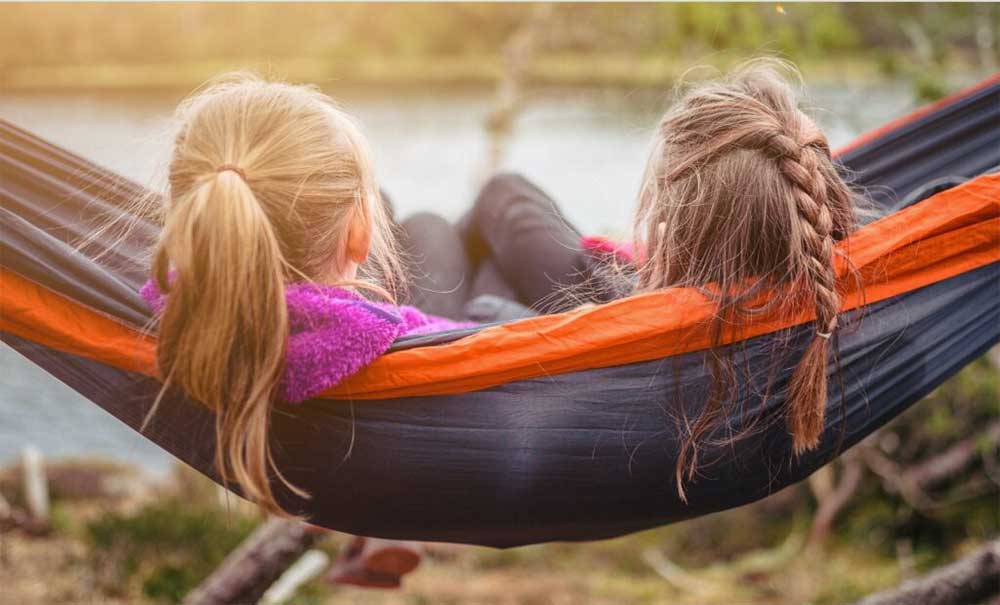
By Jamie Cook (Recreation Therapist, Recreational Respite)
Loss of a loved one is a difficult experience for anyone, but for children and youth experiencing grief and bereavement during their formative years, it can be even more complex, confusing, and overwhelming. Recreation is uniquely situated with the capacity to support children and youth through their grief and bereavement process. As a member of Recreational Respite’s team, I have seen firsthand the impact recreation can have on children who have experienced loss, and the positive role it can play during some of the most difficult experiences.
Every person experience and expresses grief differently, and children and youth are no exception to this. There is no ‘right’ way to grieve, and grieving is not a linear process. As the needs of children and youth change throughout their development, so too will their grief. Recreation provides children and youth with the ability to experience and express their grief in a way that is most comfortable and supportive for them. While working with siblings who lost a parent, it became very clear to me that they expressed their grief differently, and I found how important it was to give them a safe space to do so. We explored a variety of activities together like arts and crafts, outdoor activities, active games, board games, writing stories and reading books together. I noticed that when we engaged in arts and crafts, or other less active activities, one child was sharing more about their grief. She did this through asking questions about death, telling memories of her parent, while also expressing her anxiety and fears. I believe that these activities created the safe space she needed to have these discussions, as well as feeling that I was a safe person to talk to. Some of these conversations were extremely difficult, but I also saw how important it was to let her share at her own pace. I never probed with questions or tried to find a solution for her feelings, rather I let her lead the conversation, always ensured her that all her feelings were valid, and provided what she needed, which was someone to listen. These recreation opportunities allowed her the time and space to process and express her grief how she needed.
Her sibling processed her grief very differently. She had extremely high energy and benefitted greatly from active outdoor games that allowed her to run. She didn’t talk much about her parent the way her sibling did, but it was important for me to recognize that she was still grieving. Much like many adults use the gym, running, or yoga to destress, I believe that she was experiencing so many emotions she needed somewhere for them to go. Slowly, over time, she began to share about her grief at her own pace. There would be times when she would briefly mention how her parent played a similar game or enjoyed a sport, and then continue playing. This was her expressing her grief in her own way. She needed more time to process, and more silent support, knowing I was there when she needed or was ready. By providing each child the opportunity to engage in activities that suited their needs and their grieving process, they both saw great benefit. As passionate and skilled leaders of recreation programs, we can provide this type of individualized opportunity for every child or youth we support. This also allows us to build strong, supportive relationships with children and youth, as we can become important members of their support system to support children and youth in understanding and expressing their grief journey.
When a child or youth is experiencing grief and bereavement, it is likely the adults in their life are as well. Supporting children and youth through grief and bereavement, also involves supporting their family. Recreation opportunities give children and youth their own safe and supportive space to express their grief journey, apart from the collective grief journey of their family. This contributes to them being able to find unique, creative ways of expressing their grief. As children see those around them grieving, they can struggle process their own grief, as they question if they should be grieving in the same way. It is important for children to be given the space, resources, and support they need to explore and express their grief safely and we are uniquely situated to provide these opportunities through recreation.
In working with two children who lost a parent, I saw how important my role as a Recreational Respite provider was in supporting them. I watched them create moment to moment memories, learn how to express their grief in different ways, and begin to heal from a traumatic loss. We now often talk about their parent, and I have found it crucial to encourage them to talk about their favourite memories with them. As I said, grief is non-linear, and there are still days that are much harder than others, but recreation opportunities have increased many avenues of expressing their grief and helping them heal.
